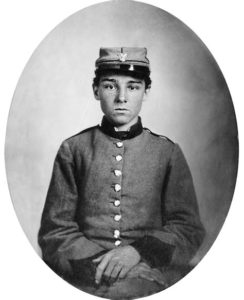“Take delight in the Lord, and he will give you desires of your heart.” (Psalm 37:4)
 Today’s verse is one of the most beautiful, most quoted, and misunderstood in the Old Testament. It has become the battle cry of the misguided but ever-growing prosperity movement and a go-to verse for those counseling someone who is going through tough times. But as is the case with many verses in the Bible, this verse needs to be examined textually and contextually if we are going to determine its real meaning. If we do not do that, we will find our faith in God sorely tested when we don’t get “everything we want.” After all, this verse seems to be pretty clear- God can and will give us the desires of our heart. The only criteria- take delight in Him. It all sounds pretty simple.
Today’s verse is one of the most beautiful, most quoted, and misunderstood in the Old Testament. It has become the battle cry of the misguided but ever-growing prosperity movement and a go-to verse for those counseling someone who is going through tough times. But as is the case with many verses in the Bible, this verse needs to be examined textually and contextually if we are going to determine its real meaning. If we do not do that, we will find our faith in God sorely tested when we don’t get “everything we want.” After all, this verse seems to be pretty clear- God can and will give us the desires of our heart. The only criteria- take delight in Him. It all sounds pretty simple.
This Psalm is written by David when he is an old man. By this time,  he has experienced wondrous events and heartbreaking events. He certainly was not the one to write that God gives a person everything he wants, every time he wants it. David’s family problems are well-documented. His sins and their consequences are used as examples of things to be avoided. His many children from many wives led soap opera lives resulting in rape, premature deaths, and murder. Eventually, all this family intrigue led to the unraveling of the kingdom of Israel that he had so delicately woven together. These certainly could not have been the desires of David’s heart.
he has experienced wondrous events and heartbreaking events. He certainly was not the one to write that God gives a person everything he wants, every time he wants it. David’s family problems are well-documented. His sins and their consequences are used as examples of things to be avoided. His many children from many wives led soap opera lives resulting in rape, premature deaths, and murder. Eventually, all this family intrigue led to the unraveling of the kingdom of Israel that he had so delicately woven together. These certainly could not have been the desires of David’s heart.
There was a father and son swimming at a river when the young boy saw a blackberry patch on the other side. The boy begged his father to let him swim across to get some. The father hesitated because the boy was not a great swimmer, but it was a short distance. Finally, the father gave in and the boy got halfway across, tired, was pulled under and swept downstream. Later when the father was explaining it to the police, he said, “He just wanted to go over there so badly, I didn’t want to tell him no.” I think the boy wished his dad would have told him no. God knows when to tell us no or to let us go. We need to tune into that great knowledge.
It has often been said, “It is a great deal easier to do that which God gives
us to do, no matter how hard it is, than to face the responsibilities of not doing it.” I think that is the case with the verses in Psalms 37:1-7. Here are the things we are told to do in these verses: fret not, trust in, delight in, commit to, and rest in. In doing these things, we will know God better, when we know God better, the desires of our hearts will mirror the desires of God’s heart. In obedience to Him we will not only see what our desires are, but what they should be. We will realize that every want is not a need and every desire does not reflect the heart of God.
When David wrote these verses, he certainly had not forgotten his desire for a woman on a neighboring rooftop which led to adultery, which led to pregnancy, which led to murder, which led to punishment. God allowed David to act on the desires of his heart, but those were contrary to the will of God. If David would have  turned to God, God would have turned David away from his sin. Obviously, what the verse in Psalms is telling us is that if we delight ourselves in the Lord, our desires will be aligned with His. The desires of our flesh are evil. If God were to give us our fleeting desires for fame, riches, and power, He would be no more than a genie in a bottle granting wishes without regard to consequences. But God cares about us and in this verse He is saying that if we delight in Him he will protect us from our own desires and replace them with desires that match His will.
turned to God, God would have turned David away from his sin. Obviously, what the verse in Psalms is telling us is that if we delight ourselves in the Lord, our desires will be aligned with His. The desires of our flesh are evil. If God were to give us our fleeting desires for fame, riches, and power, He would be no more than a genie in a bottle granting wishes without regard to consequences. But God cares about us and in this verse He is saying that if we delight in Him he will protect us from our own desires and replace them with desires that match His will.
David tells us first of all to “Trust in the LORD, and do good.” (Psalm 37:2a). If we trust God, we will look to Him for direction. We will run the desires of our heart past God first to see if they conflict with His will. David did not do that. He knew that his escapade with Bathsheba was wrong, but he did not “trust in the Lord.” He felt that his own wants should be satisfied, even if they conflicted with the nature of God. He did not trust and he did not do good.
How could a man “after God’s own heart” do such a thing? Because our hearts are “desperately wicked” and if we don’t run all desires through God first, we will choose to what is wrong.
“Delight thyself also in the LORD; and he shall give thee the desires of thine heart.” The word delight means to soften, to be pliable, to submit. This is the first step in understanding our desires. I might desire more money, which might lead me to make decisions that will hurt me and my family. Only God can see ahead at the consequences of my decisions, so I should submit to His authority through a careful study of His word. I should want to tap into His wisdom. My delight should be in the Lord and His wonderful omnipotence, not my own short term wants.
“Commit thy way unto the LORD;” (Psalm 37:5a) I should commit myself to follow God’s directives. He is a powerful and loving father and will know what is best for me better than I do. One of my favorite poems (I have quoted it before) is the prayer of the unknown confederate soldier. I think it illustrates so well that believe we know what we want, but only God knows what we need.
I asked God for strength, that I might achieve;
I was made weak, that I might learn humbly to obey.
I asked for health, that I might do greater things;
I was given infirmity, that I might do better things.
I asked for riches, that I might be happy;
I was given poverty, that I might be wise.
I asked for power, that I might have the praise of men;
I was given weakness, that I might feel the need of God.
I asked for all things, that I might enjoy life;
I was given life, that I might enjoy all things.
I got nothing that I asked for, but everything I hoped for.
Almost despite myself, my unspoken prayers were answered.
I am among all men most richly blessed.
 David tells us in Psalm 37:7a to “Rest in the LORD, and wait patiently for him:” We often want what we want and we want it right now. There is a story about a man who asks the right fielder in a little league game the score. The boy says 18-0. The man said,”Wow, you must be discouraged,” and the boy answered, “Why should I be? We haven’t batted yet.” Now that is patience. Being patient in God is one way we can show our trust in HIm. There is rest in patience. We can rest in God by listening to God. There is no peace in doing “our own thing” outside the will of God. We must be patient because God not only knows what we need, but when we need it. Like the soldier in the poem above, if we involve God in our wants He will reveal our needs. Our desires should be trusting God, committing ourselves to Him, and resting in Him. Only then will our true desires be met.
David tells us in Psalm 37:7a to “Rest in the LORD, and wait patiently for him:” We often want what we want and we want it right now. There is a story about a man who asks the right fielder in a little league game the score. The boy says 18-0. The man said,”Wow, you must be discouraged,” and the boy answered, “Why should I be? We haven’t batted yet.” Now that is patience. Being patient in God is one way we can show our trust in HIm. There is rest in patience. We can rest in God by listening to God. There is no peace in doing “our own thing” outside the will of God. We must be patient because God not only knows what we need, but when we need it. Like the soldier in the poem above, if we involve God in our wants He will reveal our needs. Our desires should be trusting God, committing ourselves to Him, and resting in Him. Only then will our true desires be met.
There are those who stand behind the pulpit and say that 37:4 means that if we desire something (like a new car) and we ask for it, we should receive it. But if our desire is outside the will of God, it will not turn out well. This is the bottom line. If we desire something outside of God’s will, we better hope He doesn’t give it to us. He is all-knowing, we are all-desiring. We need to pray that He will sometimes  stand in the way of our prayers and not give us everything we want. I think in eternity if we get a chance to ask God why he didn’t give us something we wanted and He tells us why, we will say, “Thank you so much.” If we delight in God we will ask Him to give us what we should have, not what we would have. If He gives us what we would have instead of what we should have, we will later wish that He would have given us what He should have given us (you may have to read that a few times). If we ask God to give us what we should have, he will give that to us. That is the love of a Father. He wants to give us good things, but without Him we just don’t always know what is good!
stand in the way of our prayers and not give us everything we want. I think in eternity if we get a chance to ask God why he didn’t give us something we wanted and He tells us why, we will say, “Thank you so much.” If we delight in God we will ask Him to give us what we should have, not what we would have. If He gives us what we would have instead of what we should have, we will later wish that He would have given us what He should have given us (you may have to read that a few times). If we ask God to give us what we should have, he will give that to us. That is the love of a Father. He wants to give us good things, but without Him we just don’t always know what is good!


Leave a Reply